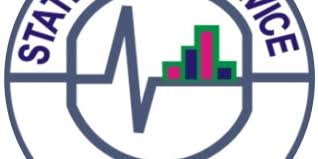The Ghana Statistical Service has reaffirmed its commitment to producing reliable statistics and strengthening collaboration across the National Statistical System, urging policymakers to place evidence at the center of planning for sustainable development.
In a statement marking World Statistics Day on Monday, October 20, the GSS emphasized that quality statistics serve as the foundation of progress, the mirror of national realities, and the compass for policy direction. The celebration adopted the global theme “Quality Statistics for Everyone,” highlighting the critical role accurate data plays in shaping national progress.
World Statistics Day is observed every five years on October 20, with the United Nations hosting a 24-hour global webinar to celebrate statistical achievements worldwide. This year’s commemoration comes as Ghana grapples with pressing development challenges requiring evidence-based interventions, from economic management to food security and environmental protection.
The GSS statement stressed that credible national policies depend fundamentally on the integrity of data that informs them. Whether tracking inflation, education levels, or health outcomes, statistics enable policymakers to transform development goals into measurable outcomes rather than relying on assumptions or political expediency.
The Service noted it is working to ensure data are understandable, accessible, and actionable, empowering not only policymakers but also researchers, journalists, entrepreneurs, and everyday citizens. This democratization of statistical information represents a shift from viewing data as government property to recognizing it as a public good essential for informed citizenship.
As part of ongoing modernization efforts, the GSS revealed it is integrating digital technologies to enhance efficiency and improve real-time data access. Innovations have enhanced efficiency, reduced delays, and expanded access to real-time, high-quality information, the statement said, acknowledging how technological advancements are reshaping data collection and dissemination practices globally.
The Service produces monthly and quarterly data on key economic indicators including inflation, the Consumer Price Index, Producer Price Index, and Gross Domestic Product. It also conducts national censuses and surveys generating demographic, economic, agricultural, and housing statistics used by government agencies, academia, businesses, and international development partners.
This commitment to statistical excellence comes at a crucial time. Ghana faces significant development challenges that demand accurate data for effective response. Recent GSS reports have painted sobering pictures across multiple sectors, from rising food insecurity affecting over 13 million Ghanaians to environmental degradation threatening water security.
The call for evidence-based policymaking resonates particularly strongly given recent policy debates around illegal mining, fiscal management, and social protection programs. Without reliable statistics, governments risk implementing expensive interventions that miss their targets or fail to address root causes of problems affecting citizens.
The GSS expressed appreciation to partners who continue to support the production and use of official data, acknowledging that quality statistics require collaboration across the National Statistical System. This includes not just the GSS itself but also statistical units in ministries, departments, agencies, and research institutions contributing to Ghana’s data ecosystem.
The statement emphasized that statistics tell the story of Ghanaians, their lives, challenges, and opportunities. Behind every number stands a person, a community, and a future that quality data can help improve. This human-centered framing counters the perception of statistics as dry numbers disconnected from real-world impacts.
However, producing quality statistics involves more than technical capacity. It requires political commitment to transparency, adequate funding for data collection infrastructure, protection of statistical independence from political interference, and public trust in the integrity of official figures. These elements create an enabling environment where evidence can genuinely inform policy rather than being selectively deployed to justify predetermined decisions.
The GSS operates under a regulated mandate to coordinate Ghana’s statistical system, ensuring consistency in methodologies and standards across data producers. This coordination function proves critical as various government entities generate statistics that must be comparable and complementary rather than contradictory or duplicative.
International standards guide the Service’s work, ensuring Ghana’s statistics meet global benchmarks for quality and can be meaningfully compared with other countries’ data. This adherence to international best practices enhances credibility with development partners, investors, and researchers using Ghanaian statistics for analysis and decision-making.
The digital transformation underway at GSS promises significant improvements in timeliness and accessibility. Real-time data collection using mobile devices, automated processing systems, and online dissemination platforms can dramatically reduce the lag between data collection and publication that has historically limited the usefulness of statistics for responsive policymaking.
Yet technology alone cannot guarantee quality. Methodological rigor, adequate sample sizes, proper training of data collectors, and robust quality assurance mechanisms remain essential. The GSS must balance innovation with maintaining the statistical integrity that gives its data credibility and authority.
As Ghana works toward achieving the Sustainable Development Goals, quality statistics become increasingly important for monitoring progress and identifying where interventions are needed most urgently. The goals’ emphasis on leaving no one behind requires disaggregated data revealing disparities by region, gender, income level, and other characteristics that aggregate national figures often mask.
The GSS statement concluded by calling for shared responsibility in advancing evidence-based development, urging stakeholders across government, development organizations, academia, and the private sector to put data at the heart of policy and planning. This collaborative approach acknowledges that statistical systems function best when multiple actors contribute data, use it responsibly, and hold each other accountable for evidence-based decision-making.
Source: newsghana.com.gh











